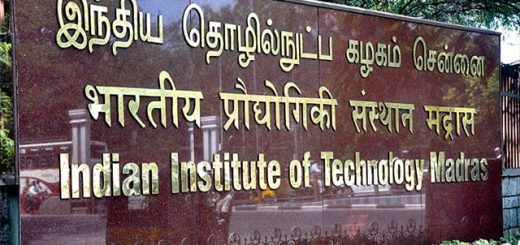IIT Hyderabad hosts International Workshop on ‘Dawn of a New Era for Indian Automotive Industry’
Telangana Govt. is one of the first 10 states in the country which is working on policies for 100% adoption of EV for public transport: Mr. Jayesh Ranjan IAS, IT Secretary, Govt of Telangana.

INN/Hyderabad, @Infodeaofficial
Indian Institute of Technology Hyderabad in collaboration with ItsEV Inc hosted an International Workshop on ‘Dawn of a New Era for Indian Automotive Industry’ by Creating New Lithium ion Battery Fits for High Temperature and Promoting Pollution-Free EV World in India in the campus here today (30th November 2019)
India at present imports Lithium-ion batteries from China, South Korea, Japan or Europe, which are made into battery packs and marketed. Even though a billion people use Lithium ion batteries, there is not even a single indigenous manufacturing company producing Li-ion batteries. The Government of India plans to convert 30 percent of all vehicles on the road in to Electric ones by 2030.
This joint collaboration between IIT Hyderabad and ItsEV Inc can play a major role in the development of Lithium-ion batteries in India and contributing to the ‘Make In India’ campaign.
Addressing the event, Chief Guest Mr. Jayesh Ranjan IAS, Principal Secretary to Government, Department of Industries and Commerce and Information Technology, Electronics and Communications Department, Government of Telangana, said, “Telangana Govt. is one of the first 10 states in the country which is working on policies for 100 percent adoption of EV for public transport. This will motivate individuals to also go for EV, which will help in reducing problems such as traffic Management and pollution. The introduction of a product like this can be a breakthrough.”
A research Group led by Dr. Surendra K. Martha, Associate Professor, Department of Chemistry, IIT Hyderabad, has substantial expertise in development of cathodes, anodes, electrolytes and performance studies, among others, for Lithium ion and Sodium ion batteries. The group has demonstrated high energy density lithium ion batteries having double the energy of Lithium ion batteries during 2018. The Researchers have demonstrated 100-200 mAh sodium-ion cells to Research Centre Imarat (RCI), Defence Research and Development Organization (DRDO) laboratory in Hyderabad
Speaking on the occasion, the Guest of Honor Mr. Katsuo Matsumoto, Chief Representative, JICA (Japan International Cooperation Agency), India Office,shared how JICA, a Japanese Government Agency, is looking to tap business opportunities in India close to Rs. 2 trillion. He has also spoke about how Japanese institutions are promoting Indian Talent though Knowledge exchange and providing scholarship for bright candidates. Till date, about 116 students of IIT Hyderabad have been offered a scholarship to study in Universities in Japan.
The objectives of this Workshop include
Ø To develop Li-ion batteries in India that fits for High Temperature operations.
Ø Reduce investment of reduction rate 70% (not having dry room)
Ø The expense of reduction rate: 80%
Ø ItsEV will provide full technical support for training technicians, students, scientists in Japan so that we can develop indigenous Lithium ion batteries, this may help to increase EV production in India operating high temperature conditions, reduce pollution.
Ø Student exchange programs
Ø IITH and ItsEV Inc together will bring out a battery through joint collaboration, which will be superior to the other existing batteries in India.
Delivering the Welcome address, Prof. B.S. Murty, Director, IIT Hyderabad, said, “This demonstration of Lithium-ion Battery operated 3-Wheeler Electric Vehicle (Auto) will give wonderful outcome 10 years down the line and will play a significant role in the growth of both the countries – India and Japan. We are looking to tie-up with industries around to take-it for production India.”
Speaking on the occasion, Mr. Kazuo Chiba, President, ItsEV Inc., explained why a product such as this is needed for the countries like India where traffic is one of the major problems. This Lithium-ion battery operated EV powered by Solar Power will also reduce huge wiring set-up required for electrically powered EV. The Population required of public transport of best quality, affordable price and good to environment will support this project in India.
Prof. Vijayamohanan K. Pillai, Indian Institute of Science Education and Research (IISER), Tirupati, emphasized the need to go for EVs. It will also save the environment by reducing carbon footprint and create livelihood in India by generating approximately 50,000 employments by 2022.
A demonstration of an EV3Wheeler, developed by ItsEV Inc, Japan, equipped with Japanese Lithium Ion Batteries, was also held on the occasion. It consists of 16 modules, each having 4 cells. Each cell has nominal voltage of 3.75 V. Each module consists of 2 Series and 2 Parallel Cells. The pack consists of 2 parallel and 8 series modules having nominal voltage of 60V and 130 Ah. The ‘EV3Wheeler Lithium Ion Batteries can be charged directly from Solar without using electricity. Currently, the solar panels are provided by Sahaj Solar Pvt Ltd, Ahmedabad.




